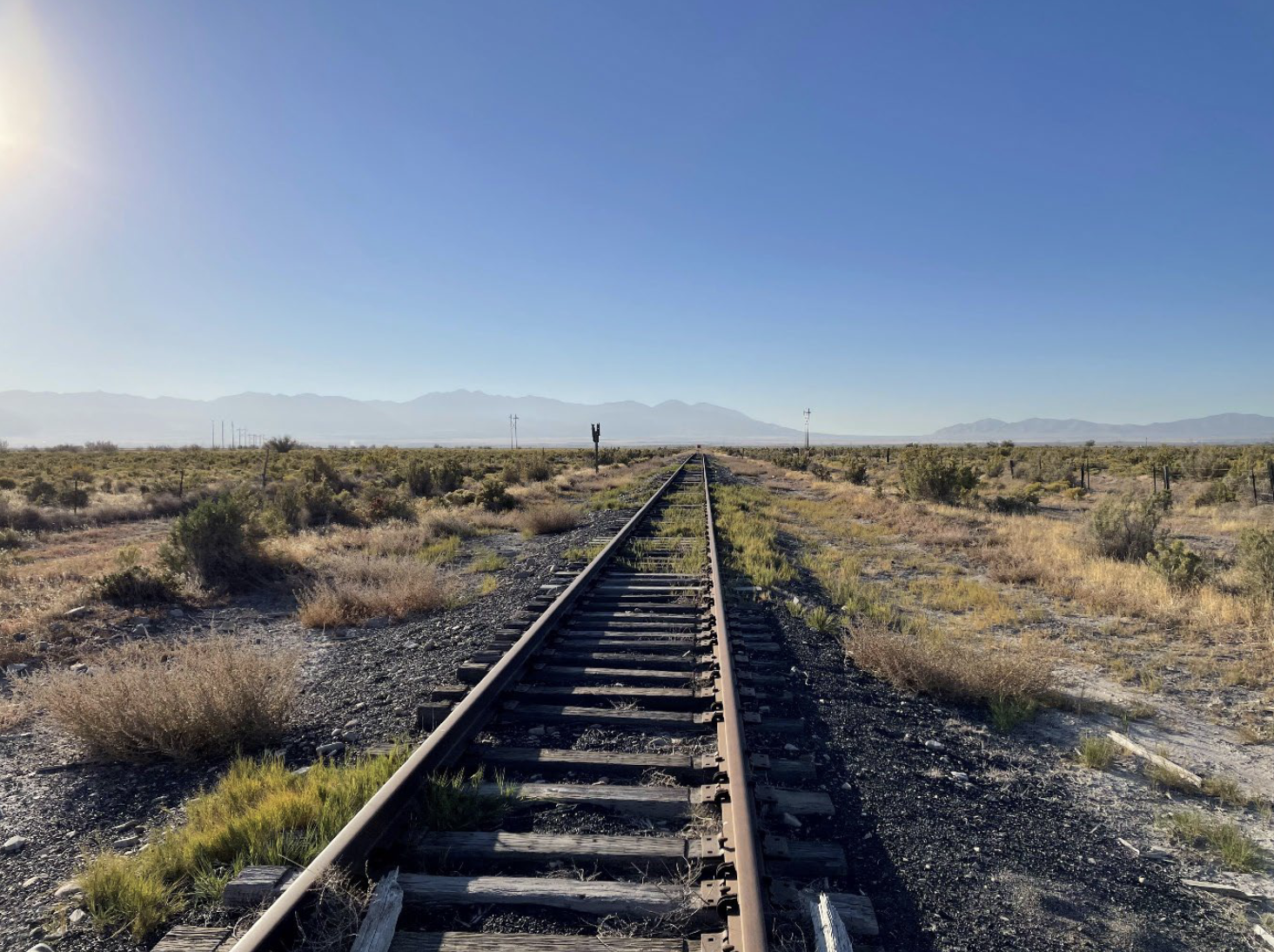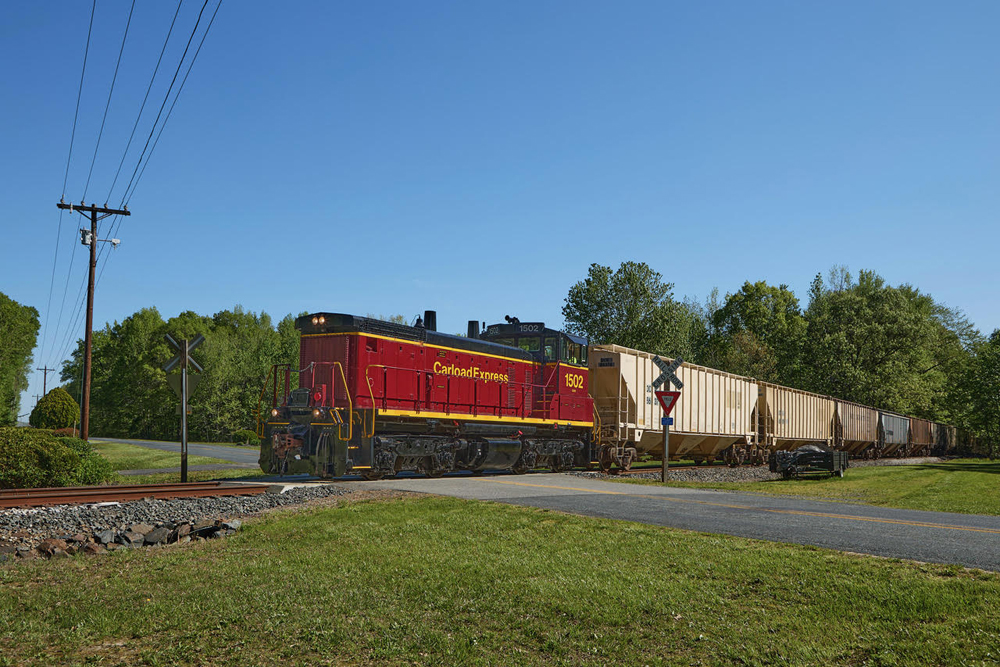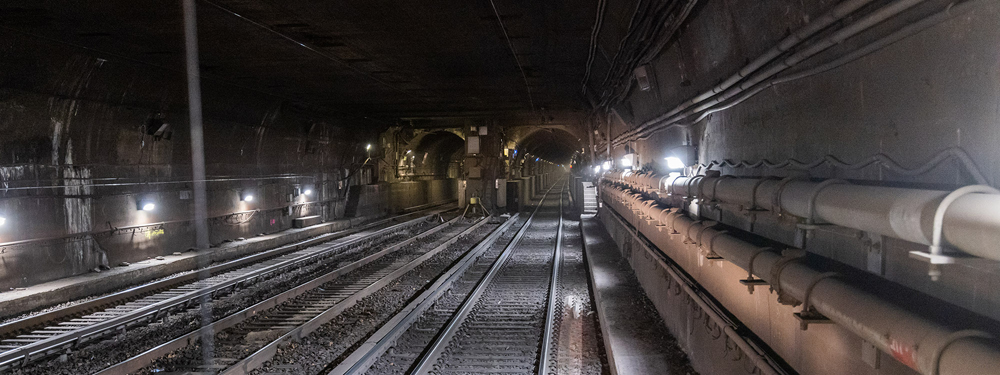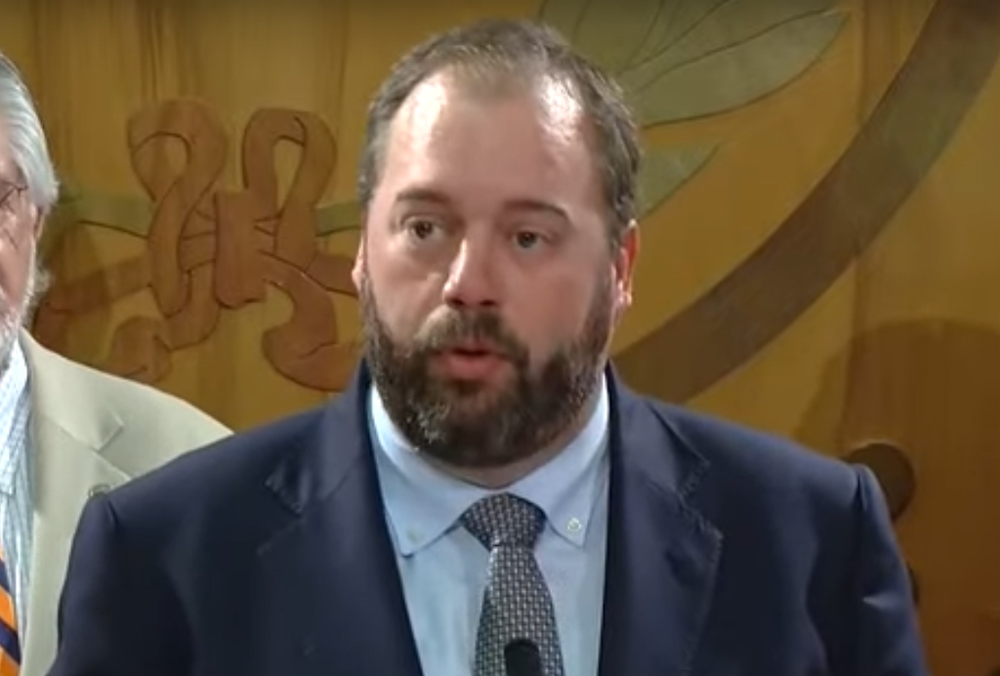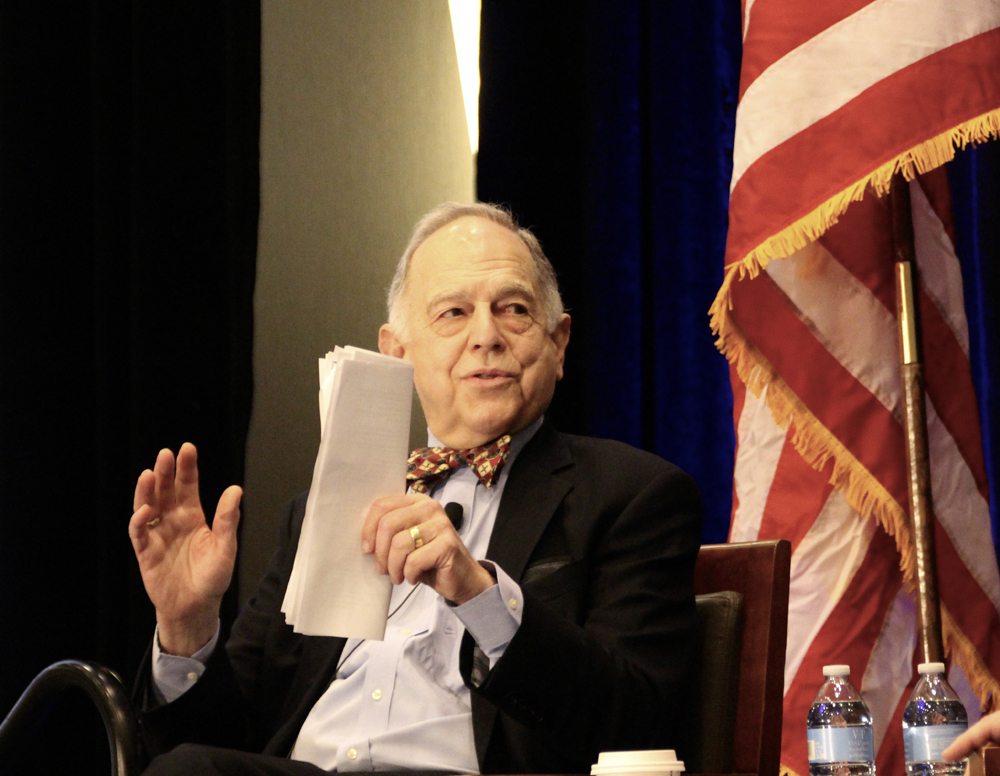
As always, some notable events did not quite crack our list of the Top 10 stories of the year. And as it happens, the four stories that finished just outside the Top 10 are closely related: Chairman Martin J. Oberman’s forthcoming departure from the Surface Transportation Board; UP’s service issues and change of CEOs; the STB’s reciprocal switching proposal; and UP’s use of embargos.
Oberman to depart from ‘active’ STB. Oberman announced in November at New York’s RailTrends conference that he would not seek reappointment for a second term on the STB. The 78-year-old Oberman, a former Chicago alderman and Metra board chairman, was appointed to the STB in 2019 and became chairman in January 2021; his term expires on Dec. 31, but he will continue to serve into 2024 under a provision allowing up to a year of holdover service.
Oberman used the position to criticize railroads on such matters as Wall Street’s emphasis on short-term profits over long-term health and pushed them to do more to improve freight service. During his tenure, the STB approved the Canadian Pacific-Kansas City Southern merger and CSX’s acquisition of Pan Am Railways; held hearings on Amtrak’s efforts to restore passenger service between New Orleans and Mobile, Ala.; created an office to address Amtrak issues regarding on-time performance; and the long-discussed reciprocal-switch proposal, among other activities.
“The staff tells me this has been the most active board in the last 20 years,” Oberman said when he announced his plans. “By the way, some of my friends on the board say we’re an active board. Others of them say we’re an activist board. You pick.”
Oberman says he has developed “a deep respect and appreciation” for the rail industry, even as he continues to point out its problems.
“Rail service and productivity could be so much better, and I think we all know it,” he said. “My efforts at the STB, even when they may have been annoying to some members of the industry, have all been aimed at pushing and nudging the industry towards achieving that immense but as yet unrealized potential.”
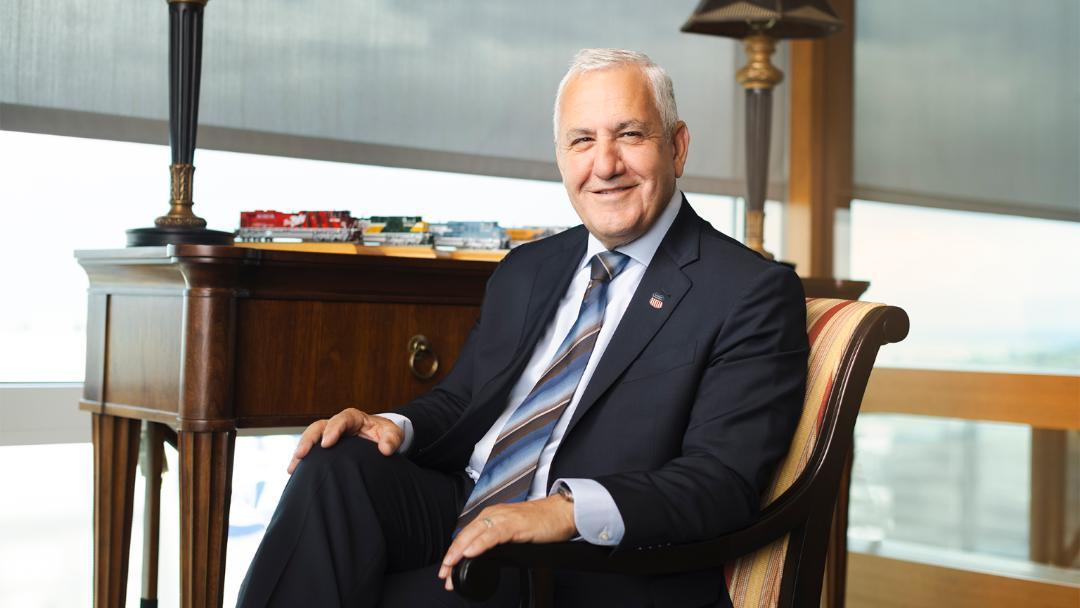
Union Pacific faces service issues, replaces Fritz with Vena as CEO. Oberman was something less than Union Pacific’s biggest fan in 2023. Even on the day he announced his intent to leave the STB, he criticized the railroad’s furloughs and management cuts.
Investors, too, were unhappy, with hedge fund Soroban Capital — one of the railroad’s top 10 investors — calling for a new CEO in February, saying the railroad ranked last in every major operating metric. In response, UP announcedLance Fritz would step down from the chief executive position, and eventually hired Soroban’s favored candidate, former UP Chief Operating Officer and longtime Canadian National executive and Jim Vena. Vena was named CEO in July, while Beth Whited became president and Mike McCarthy was named board chairman. Fritz had held all three positions.
“We have to be a lot more nimble,” Vena, 64, said in an October interview with Trains News Wire. “We have to be able to react to grow the business with our customers. And if we do that by having the right employees, good effective cost control, good asset utilization, and having a buffer of plant capacity, a buffer of people, and a buffer of assets so that we’re ready for the ups and downs, I think we’ll turn the story around for UP. I didn’t come back to work because I thought we couldn’t do it. I came back to work at my age because I see the railroad and what we’re capable of.”
As the year progressed, the railroad’s performance showed improvement, although it did coincide with decreased traffic. As of UP’s most recent earnings call — for third-quarter results, reported in October — the railroad said figures for car-miles per day and terminal dwell had improved, while trip-plan compliance had improved by 13% over a year earlier for intermodal traffic and 6% for automotive and manifest traffic. It touted further improvements in a message to customers on Dec. 1.
Citing a need to streamline decision-making, the railroad laid off some executives — less than 5% of its managerial workforce — in November, reflecting an earlier comment from Vena: “You can’t have nine levels from CEO to the people who actually do the work and expect that the message is clear, decisions are made clear.”
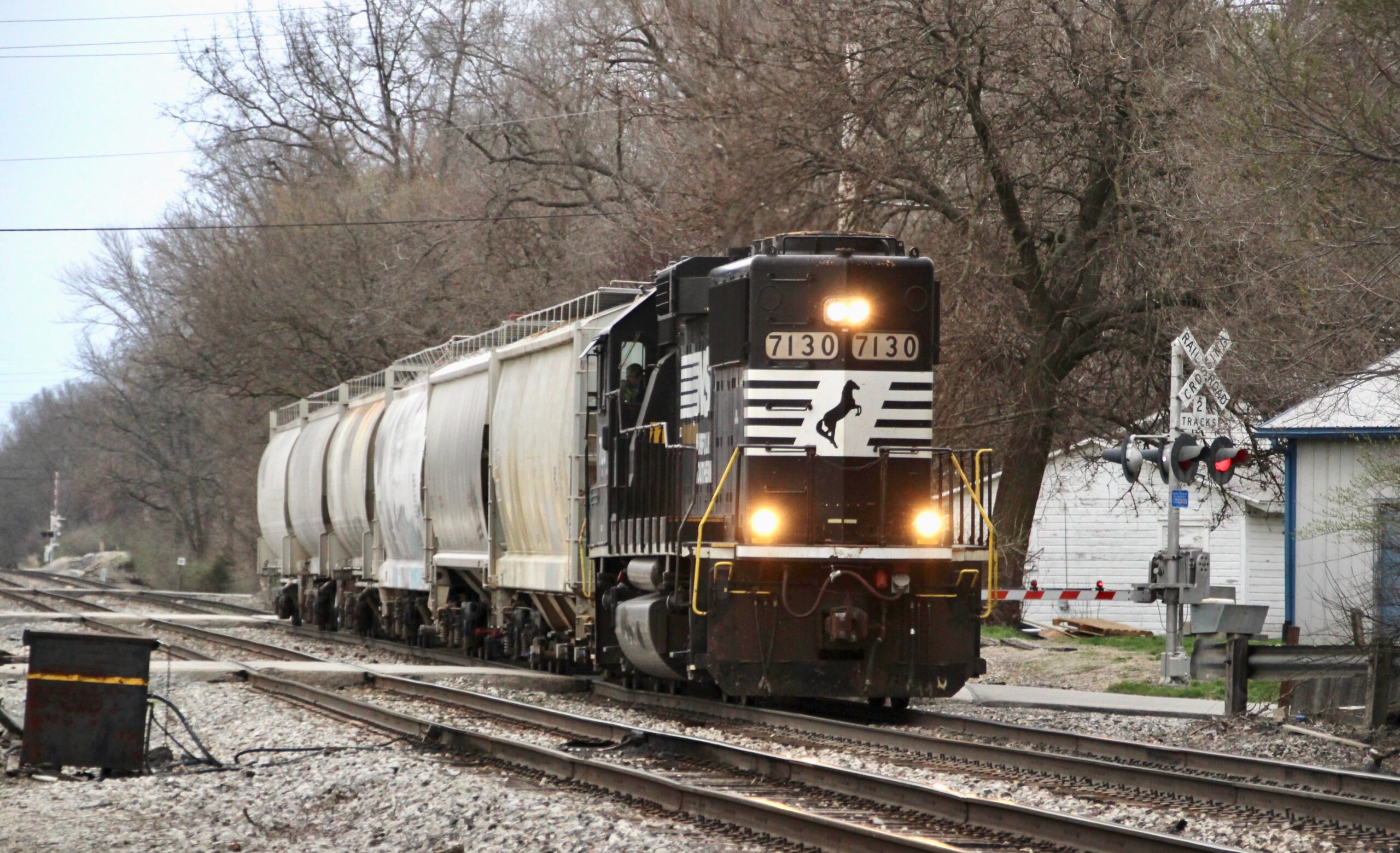
Reciprocal switching and UP embargoes. Various reciprocal switching proposals have been considered since 2010. The version released in September sets a formula in which railroads must meet minimum service standards for reliability, consistency, or local service adequacy. A shipper could seek a switching agreement with another railroad if service fails to meet any one of the three.
Predictably, railroads found it too intrusive — the Association of American Railroads, which has labelled the concept “forced switching,” said it will have “serious negative consequences for the industry” — while shippers sought a rule that would increase the number of cases in which shippers would gain access to a second railroad.
The board has promised to move swiftly on the proposed rule.
Union Pacific, meanwhile, was still on the hot seat for its use of embargoes as the year began, following STB hearings on the issue in December 2022 [see “Union Pacific, stung by criticism of embargoes …,” Trains News Wire, Dec. 15, 2022]. Oberman told the Midwest Association of Rail Shippers that “the use of embargoes as a way to control congestion … caused by lack of crews, strikes me as directly implicating the common-carrier document.”
But the railroad, which had pledged to listen to the comments it heard at those hearings, did indeed address the issue. By April, it had cut the use of embargoes by more than 65% compared to the same period in 2022, and the issue gradually faded from the headlines.
Previous News Wire coverage:
“Union Pacific has lost its way: Analysis,” Jan. 11, 2023.
“UP, embargoes still in crosshairs of STB chairman,” Jan. 19, 2023
“Union Pacific to seek new CEO after hedge fund prods board of directors,” Feb. 26, 2023.
“Union Pacific dramatically scales back use of congestion-related embargoes,” April 28, 2023.
“STB chairman: Class I railroad strategies are inviting stronger regulation,” May 26, 2023
“Union Pacific names Vena as new CEO,” July 26, 2023.
“Proposed reciprocal switching rule takes aim at inadequate railroad service,” Sept. 7, 2023
“The Trains Interview: Union Pacific CEO Jim Vena talks service, growth, competition, and steam,” Oct. 19, 2023.
“Union Pacific earnings fall amid volume slump, but operations and service improve,” Oct. 19, 2023.
“Union Pacific announces management layoffs in bid to speed decision making,” Nov. 1, 2023.
“Railroads and shippers criticize proposed reciprocal switching rule that takes aim at inadequate service,” Nov. 8, 2023.
“STB chairman Oberman will not seek reappointment,” Nov. 16, 2023
“Union Pacific service metrics show continued improvement,” Dec. 1, 2023.
Coming Saturday: The Top 10 countdown begins.






